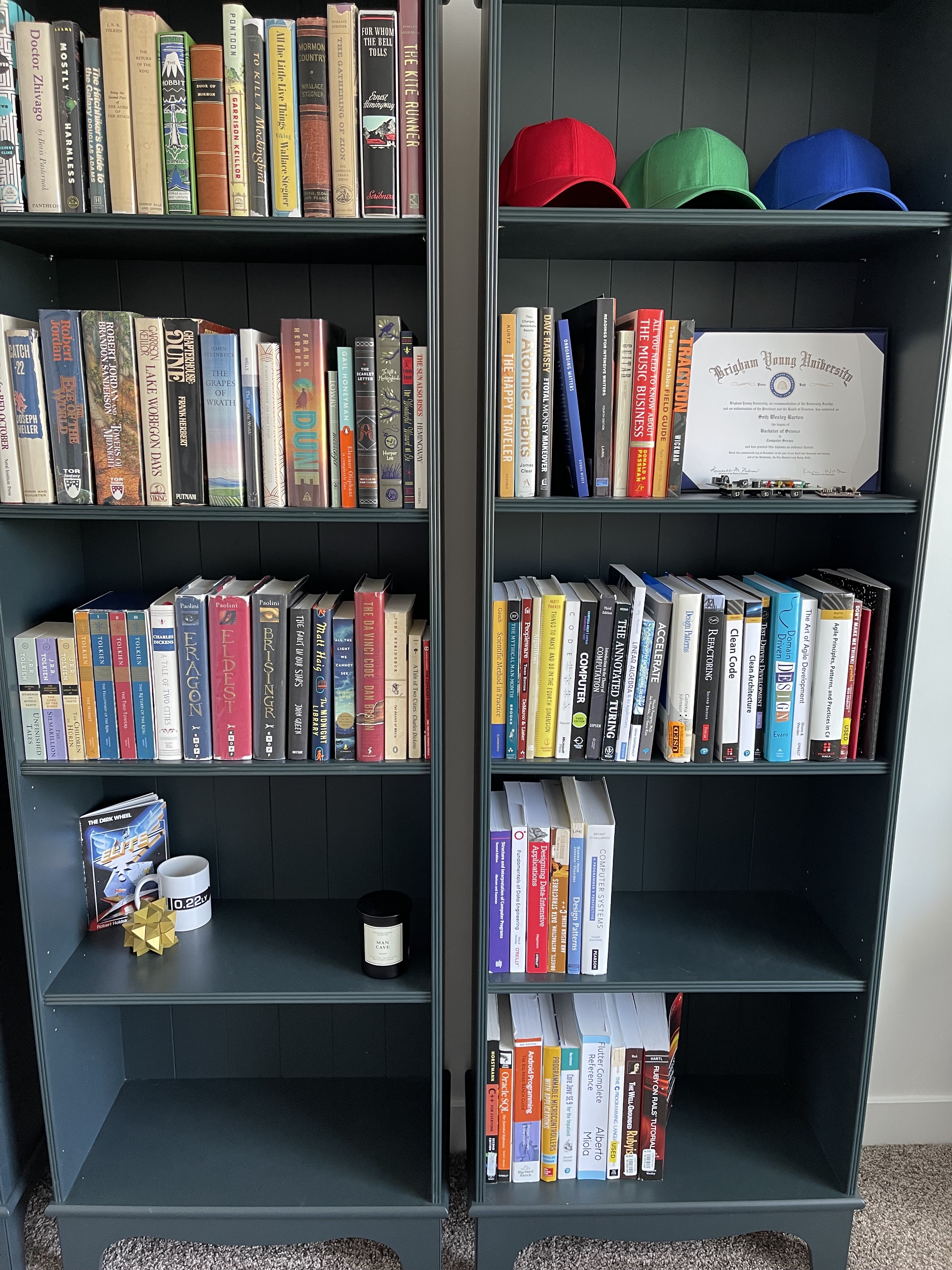When I meet someone new and reveal that I'm a programmer, I sometimes get the question, "Do you do any xyz?" Where xyz is whatever is currently in fashion that year. Most recently, after introductions and a brief chat about our current jobs, my new acquaintance asked me, "Do you do any AI?"
I hated to have to give him the bad news: I don't do any AI. And I'm not even planning on doing any AI. So I said no, but I hinted at a proficiency with the OpenAI API. I couldn't just leave it at "No."
Later, I was contemplating why I couldn't leave my answer at "No, but I'm excited to see what happens with it." And I realized that I was feeling a peculiar emotion when I was asked whether I did any AI - shame.
I imagine many programmers know the feeling, but being asked such a question, especially when the topic at hand is all over the public mind, makes me feel... not useful. As programmers, technological relevance can be so top of mind that if a new tech crops up without us being part of it, the ultimate FOMO machine kicks into gear. Thoughts begin to creep into your mind like "what if this technology is where I make my millions?" or "what if this technology is the only thing people are hiring for in the future?" It can take effort and real courage to keep these thoughts at bay and to realize that, really, web development (or whatever you're into) is a fine place to be.
I don't mean to minimize a few real issues here. It can certainly be the case that developers pigeon-hole their careers into a very niche subject which will eventually be out of demand. COBOL developers come to mind. But that turning of the wheel happens far slower than the annual turning of the news cycle onto a newly relevant topic. What I'm saying is, don't worry, the world still needs your type of developer and likely will for many, many years to come. The latest thing is just a fad. It might be important, revolutionary, disruptive, and all the things you hear about it online, but it doesn't mean that you are no longer relevant.
You're Too Late For The Current Thing
Whatever the current thing is (in 2023 it's AI) I'm sorry to break the bad news to you, but you're too late to make your fortune programming with that thing.
The best you can do, as far as I can tell, is to get a high-level vision of what's what, why it's important, and how to use it. Tell your business that you can use it if they need it. But other than that, I wouldn't spend too much time with it. The business you work for, or your marketing department, might want you to gain some experience with the thing - and you've got a responsibility to acquiesce to their demands. Soon, they will realize that they are also too late to make a fortune off this new gold rush.
In terms of the current AI outbreak, I think the best us programmers not involved in the revolution can do is wait for new tools to crop up, and use the new tools to the best of our ability when they are viable enough to be useful. The way it stands right now, ChatGPT is not useful enough to make a significant difference in the effectiveness of programmers, as far as I can tell. However, I imagine that this will change within the next few years. And, when it does, I fully plan, and you should to, to use whatever tools become available.
Focus on What Doesn't Change

Living in the rush and bustle of technology is exhausting and, in my opinion, ultimately unfulfilling. Early in my career, I felt that I would never be able to keep up with it, but that I had to keep up with it. Eventually, I realized that it's better to focus on what doesn't change about software engineering - and there's actually quite a lot in this area.
I have a bookshelf of non-fiction and most of it is filled with programming related books. The programming books are organized according to a rough structure. The middle shelf (the most accessible shelf) has books about relatively unchanging topics. These are things like mathematics, practices, disciplines, management, design, etc. These things change very infrequently in our field. For instance, software design has had relatively few significant advances (that I know of) since the early 2000's. And the foundational mathematics of our field has been roughly the same for half a century.
The shelf below that contains books that are a bit more specific, and change more frequently, but still rather infrequently. It has books like "Foundations of Data Engineering". The data engineering book is going to get outdated as new technologies come to the forefront of that field, but most of the ideas within it will likely be good for many years to come.
Then at the bottom I keep the books about subjects that change rapidly. Any technology reference goes here. I have books on Ruby, C++, and Java here.
The point of all of this is that I believe a wise developer spends more time learning and mastering the things that don't change. That's why I keep those books at the top of the shelf. Time should be spent learning the new technologies, yes, but the unchanging aspects of our field, in my opinion, offer more wisdom and greater return on investments.
So, no, you don't need to be doing AI right now. And you don't need to feel bad about it.